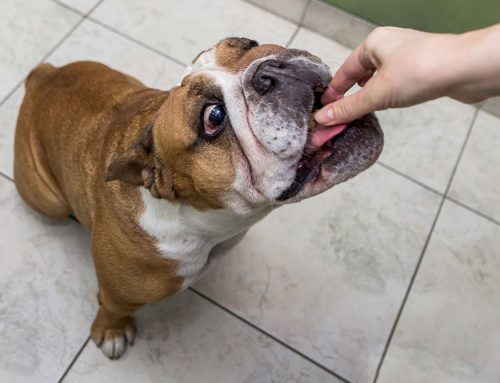By Dr. Jenna Cooper, Banderas Pet Hospital
Hi Banderas Pet Hospital family,
We wanted to share an important update with you. A bat recently found near Rancho Santa Margarita Lake tested positive for rabies, according to the Orange County Health Care Agency. While these cases are rare, they make the news because of how serious rabies can be. In fact, rabies control falls under public health—because the concern isn’t just for pets or wildlife, it’s for human safety.
Not the First Time—And Probably Not the Last
This isn’t the only time a bat has tested positive recently. On September 23, 2024, a bat at the San Diego Zoo Safari Park also tested positive for rabies. Another was found there back in June 2021. These discoveries don’t happen every day—which is why they get media attention—but they serve as an important reminder to stay cautious around wildlife.
Why Rabies Vaccines Are So Important ?
Rabies is almost always fatal once symptoms begin. That’s why vaccination is required by law for dogs and strongly recommended for cats. The rabies vaccine doesn’t just protect your pet—it helps protect your family, your neighbors, and your community.
Even indoor pets can be at risk. Bats—small, quiet, and fast—can enter homes through tiny openings, attic vents, or open doors.
Understanding the Rabies Incubation Period
Rabies doesn’t cause symptoms right away. After a bite, the virus travels slowly through the nervous system before it reaches the brain. This incubation period can last weeks to months.
That means a dog bitten by a rabid animal might look totally fine for a long time—but could become infectious before any signs of illness appear. This is exactly why quarantine decisions are made by health authorities based on vaccine status and exposure history.
Vaccination stops the virus in its tracks—before it can spread.
Did You Know?
In California, if your unvaccinated pet is exposed to a potentially rabid animal, the law recommends euthanasia due to the high risk of rabies.
As an alternative, your pet may undergo a strict 6-month quarantine, with no human contact, under local health supervision.
But if your pet is vaccinated, they typically only need a booster shot and 30 days of observation.
A simple vaccine can save lives—and prevent heartbreaking decisions.
Top 3 Animals That Spread Rabies in the U.S.:
- Bats – The leading source of human rabies cases
- Raccoons – Common in both rural and urban settings
- Skunks – Especially in certain regions of the country
- (Foxes and unvaccinated domestic animals can also carry rabies.)
What about opossums?
Opossums are very unlikely to carry rabies. Their low body temperature makes it hard for the virus to survive. While they may look intimidating, they aren’t considered a major rabies threat.
Cases Involving Bats and Humans
In 2021, three people in the U.S. died from rabies after exposure to bats. In one case, a person found a bat in their bedroom but didn’t think they were bitten. Another person declined treatment even after the bat tested positive.
These tragic events show how important it is to take all bat encounters seriously.
Read more – CDC Report
One Story of Survival
Rabies is almost always fatal—but there are rare exceptions. In 2004, a 15-year-old named Jeanna Giese became the first known person to survive rabies without being vaccinated beforehand. Her recovery involved an experimental treatment and months of rehabilitation.
It’s a powerful story—but a reminder that survival without prevention is the exception, not the rule.
Read her story – Scientific American
Simple Ways to Stay Safe
- Keep your pets up to date on their rabies vaccinations
- Never handle wild animals—even if they appear friendly or injured
- Report bat sightings in homes or public places to animal control
- Educate your family about the risks of interacting with wildlife
For more information, visit RabiesAware.org.
If you’re unsure about your pet’s rabies vaccination status—or just want peace of mind—give us a call. We’re always here to help.








Leave A Comment